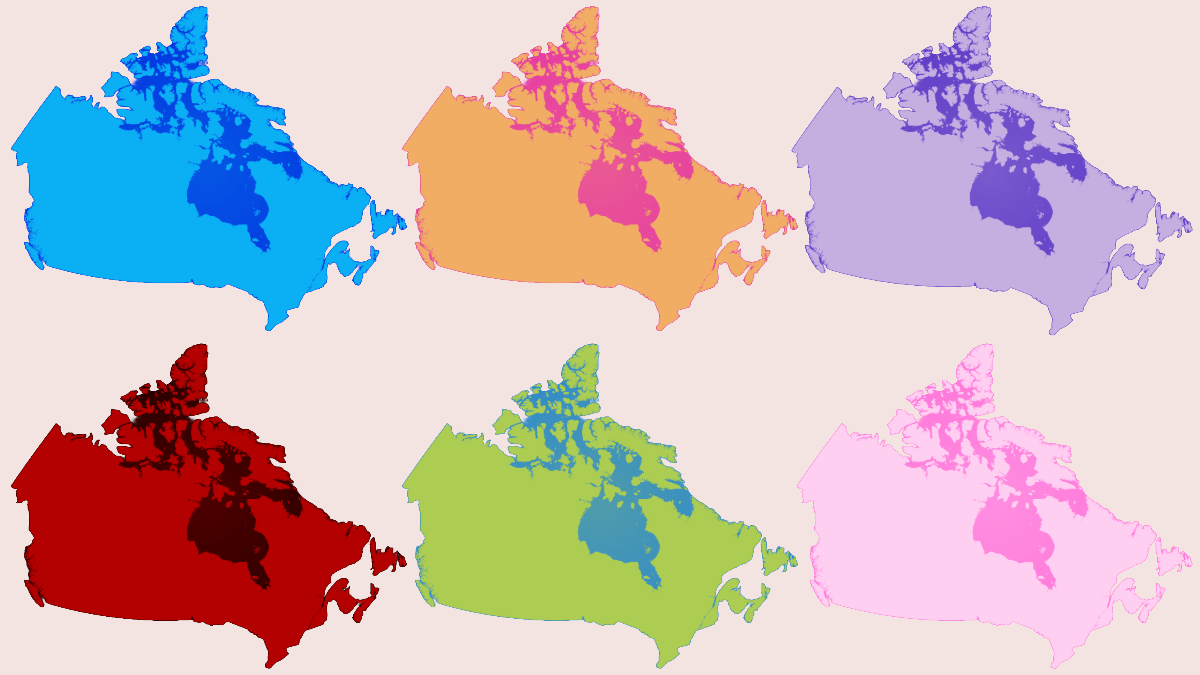A Tech Anti-Monopoly and Accountability Agenda for Canada
Keldon Bester / Jun 26, 2025This post is part of a series of contributor perspectives and analyses called "Democratic Accountability in the Shadow of US Tech Power—How Should Canada and Australia Respond?" Learn more about the call for contributions here.
Keldon Bester is the executive director of the Canadian Anti-Monopoly Project (CAMP) and a fellow at the Centre for International Governance Innovation (CIGI).
Caught in the crosshairs of the Trump administration’s newfound antipathy toward allies and amid talk of turning Canada into the “cherished 51st" state, confronting American tech power has never been more pressing for the country.
While Canada is no stranger to tech accountability efforts, work that is beginning to take flight must now respond to a repudiation of core assumptions by the Trump Administration that have underpinned Canadian policymaking for decades. By embracing an anti-monopoly approach, the Carney government can build on past efforts to preserve Canadian sovereignty and strengthen international ties.
The shift in the US posture towards Canada has already reconfigured the political landscape. What had looked like an election focused squarely on the cost of living, and one that was expected to deliver a landslide victory by the Conservatives, instead gave the Liberals under Prime Minister Carney a minority government, with voters largely choosing based on who they thought would best handle the current American President.
But while open threats to Canadian sovereignty are unwelcome, the White House’s tone has brought new urgency to addressing an issue that long predated the current administration: Canada’s dependence on the US and its largest corporations. In few markets is this dependency is more extreme than in the digital markets that increasingly underpin the modern economy. It stems from two now-invalid assumptions: a stable relationship between Canada and the US and an arm’s length relationship between the US government and its major tech firms. In 2025, neither assumption holds up to scrutiny.
Though threats of annexation are unique to Canada and Greenland, the structure of Canada’s digital market mirrors that of other nations. Most Canadians report using Meta platforms at least a few times a month. Google’s search engine is as dominant in Canada as it is elsewhere. Google, Meta, and Amazon receive nearly 90% of the market share in online advertising spending. Nearly half of Canadian businesses and the federal government depend on cloud computing services provided by Amazon, Microsoft, and Google.
What was once framed as an issue of competition, privacy, or public safety is now seen as a threat to Canadian sovereignty. How we access information, communicate with one another, and conduct commerce depends on a handful of conglomerates headquartered in an increasingly unreliable ally. The task now is not just to improve competition and the dynamism of the Canadian economy, but also to insulate ourselves from foreign interference – a possibility considered by most to be beyond the pale before 2025.
Canada, however, is not starting from zero when it comes to recognizing and responding to the threat of Big Tech power.
Two pieces of legislation, C-11 and C-18, the Online Streaming and Online News Acts, respectively, drew the ire of American tech giants by requiring them to contribute to support Canada’s cultural and news industries. C-18 resulted in Meta’s banning of Canadian news outlets across its Facebook and Instagram platforms, degrading the quality of Canadians’ information environment. Canada is not alone in this experience. Big Tech has been threatening governments ranging from Australia to California with the removal of services in response to regulations that are against their interests, well before the Trump administration. At the same time, Canada led its G7 colleagues in the adoption of a digital services tax (DST) to ensure fair taxation of digital offerings, no matter the headquarters of the company in question.
Though not aimed directly at Big Tech, Canada also undertook material reforms to its central piece of competition law, the Competition Act, in 2023 and 2024, which strengthened the ability of Canada’s Competition Bureau to police the anti-competitive conduct of dominant companies across the economy. The investigation predates the reforms, but Canada’s upcoming litigation against Google’s alleged abuse of dominance in the online advertising market may become a proving ground for the updated law.
Other efforts addressing different dimensions of tech accountability failed to make it across the finish line when Parliament was suspended in early 2025. Bills C-26 and C-27 sought to improve cybersecurity measures for critical infrastructure and provide a long-overdue update to Canada’s privacy protection regime. Shifting the focus to content moderation, the ambitious and controversial Bill C-63 took important steps to address a wide variety of online harms. While each bill’s goals differed, each was an important effort to reclaim governance of important dimensions of the economic and social lives of Canadians from the handful of companies that play such a significant role in shaping them.
But each of these efforts was undertaken when Canada, like so many other countries, thought of tech regulation as a critical but more routine policy matter, not a fundamental debate on our future as an independent nation. It appears that in the early days of the new government, this message has not sunk in. In the recent Speech from the Throne, the King made mention of protecting Canadian sovereignty through rebuilding and rearming Canada’s defensive capabilities and strengthening international relationships. But defense spending and trade agreements can only do so much in the face of the kind of dependence Canada has on American technology for our economic and societal infrastructure.
To begin charting a course that insulates but does not isolate Canada from external threats, the government must adopt a tech accountability agenda rooted in anti-monopoly principles. Instead of merely redistributing the spoils of American tech wealth, Canada must center the preservation of our sovereignty, diversifying and regaining control in critical markets, and deepening cooperation and coordination with dependable allies to mitigate the risks posed today by dominant tech firms.
The priority of the Carney government, then, should be moving quickly to insulate ourselves from abuse by American tech firms by updating previous legislative efforts to the current geopolitical context. This should take the form of requirements for domestic data and cloud infrastructure, enhanced cybersecurity and privacy protections, and stepped-up efforts to combat foreign interference in our information ecosystem. In each area, the government has a strong foundation to build on and can consolidate previous disparate efforts around the question of how best to preserve Canadian sovereignty. These should be paired with stronger coordination with like-minded allies pursuing similar tech accountability efforts, recognizing the limitations on Canada’s ability to go it alone.
Canada must also stand firm on existing efforts to rein in the power of dominant tech companies rather than capitulating with the hope of more lenient treatment in the future. The Competition Bureau’s case against Google’s advertising monopoly is just one example. We should expect the Trump administration to lean on the Carney government to have Canada’s Competition Bureau abandon or water down its case and leave American tech firms undisturbed going forward. The danger here is that Canada views competition policy as a niche rather than just one front in Canada’s ability to remain sovereign within its borders. Backing down on competition policy today means the same for privacy, taxation, and national defense tomorrow.
Capitulation here would also cut across the government’s goal of improving the cost of living for Canadians. Absent global break-ups ordered by other jurisdictions, Canada must do its own homework to benefit from greater competition in digital markets. Epic Games’ recent victory against Apple has fundamentally reshaped the scope of control monopolists can exercise over their walled gardens. While American users may soon have the option to avoid Apple’s 30% fee through some apps, Canadian users will continue to pay the same monopoly tolls without parallel actions on our own soil. By taking cues from international partners on investigation and legislative efforts, Canada can be a part of creating a global baseline of fair competition in digital markets.
Looking forward, Canada must also begin the work to ensure that the situation we face in 2025 is never repeated. Canada must recognize that its relationship with the US, a product of history, geography, and the path of least resistance, is also a story of monopoly. The same is true with countries as it is with companies, benevolent or otherwise; in the moment, under monopoly, the customer is never in control. Canadians may be hopeful that if we can only outlast the Trump administration, the next administration will return to business as usual.
This cannot be our default posture. The work to diversify away from dependence on America for key economic infrastructure like compute power will take time and must begin today. Going beyond previous efforts, the Carney government should begin work on legislation to prevent the discrimination of Canadian firms and support alternatives to American infrastructure for both Canadian businesses and governments. Addressing Canada’s monopoly problem, diversifying our relationships, and forging tighter alliances with a wider array of like-minded allies, rather than isolating ourselves, will be key to ensuring our continued independence.
As a middle power, Canada faces a tall order when it comes to reasserting its sovereignty against global tech giants. While Canada has made recent progress, those efforts must be updated to reflect the monopoly problem at the heart of our new geopolitical reality.
We must also stand firm on our ability to regulate companies that operate within our borders, no matter their country of origin. Finally, we must take to heart the lessons of the anti-monopoly movement and diversify and decentralize the markets that underpin the infrastructure of our economy and society.
In each case, the path of least resistance will encourage us to revert to the comforting assumptions that have shaped the policymaking status quo for decades. Recognizing those assumptions as a thing of the past will be the first step to forging a new path forward.
Authors

